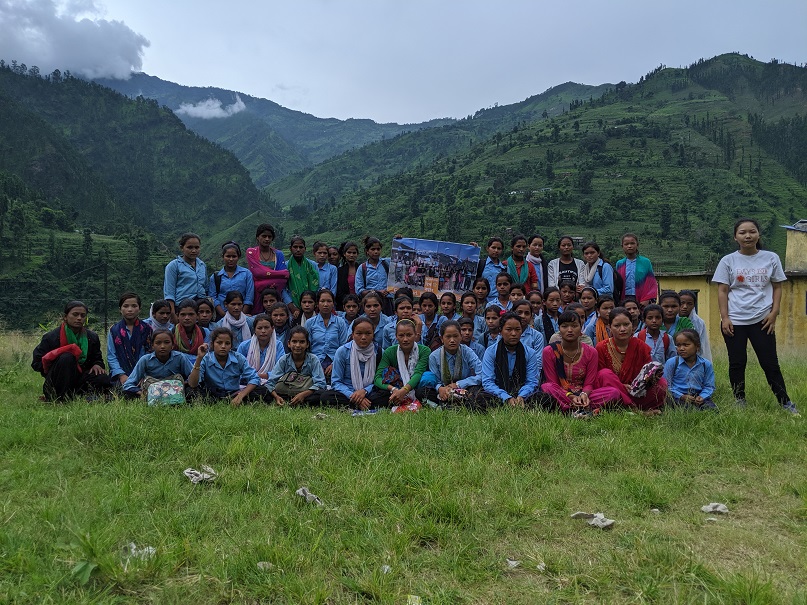Digesh Chitrakar’s GVPS Lecture, Taking a Step to Promote Quality Education, Health, and Menstrual Hygiene in Accham, Nepal, demonstrated the efforts made by Chitrakar and his peers to encourage menstrual education in the rural district of Accham, Nepal.
Before delving into the process and methods of the project, Chitrakar highlighted the importance of situating Nepal for context and understanding. Demonstrating that Nepal is a landlocked country in Southern Asia positioned between India and Tibet (The Autonomous Region of China), Chitrakar highlighted Hinduism as the religion most ascribed to in Nepal.
Chitrakar’s GVPS Lecture began with an explanation of Chhaupadi, the deep rooted tradition of menstrual taboo, specific to the Hindu religion in Nepal. The taboo prevents women and girls from partaking as a normal member of the family, whilst they are menstruating, as it is believed that they are impure and will bring bad luck to their family. During this menstrual practice, Chitrakar depicted that women are banished from their homes, deprived of nutritional foods, forced to skip school or work and subject to unhygienic conditions. Furthermore, as a result of these unhygienic conditions, the women run the risk of pneumonia, animal and insect bites, infection and sexual assault.
In an interrogation of the problems that persist with Chhaupadi, Chitrakar demonstrated the difficulties presented by the built environment, which poses a serious challenge to the construction infrastructure in Accham. Furthermore, since education isn’t a priority, this deep rooted tradition is continued as people continue the tradition out of respect for the older generation. Chitrakar relayed a story in which a woman did not adhere to the practice of Chhaupadi as she believed her period had ended, however, it had not. During this time, her family suffered gravely. As a consequence of such coincidences being understood as an act of God, the superstition is perpetuated over and through generations.
The goal of Chitrakar’s project was to reduce the effects of Chhaupadi; demonstrating that a level of respect had to be maintained toward the tradition as not to alienate the communities they were trying to reach. Conducting workshops that emphasised the importance of education and awareness of menstrual health and hygiene, Chitrakar, joined by peers, used the following methods. They sought to educate the younger generation and make them aware, provide menstrual information and gain an understanding of the village.
Despite Chitrakar’s efforts, the challenges of the project were that, not only were the schools themselves difficult to reach, but once the group had arrived, they noticed that attendance at the school was low, infrastructure was built but not maintained, sanitation and health were not considered a priority and there were not proper doctors in the area.
Phase One of the project focussed on promoting menstrual education in schools to alleviate the consequences of Chhaupadi, this involved the building of a library and health and sanitation workshops. Phase Two was more community based, to reach both the women and men of the society, since the tradition inherently connects them both.
In his conclusion, Chitrakar highlighted that one of the key difficulties is the place of males within the society, where men are championed more than women from their birth. Despite the challenges faced by Chitrakar and the team whilst conducting this work, Chitrakar spoke to the importance of the Davis Peace Project and effecting research to promote change on a topic on which you feel incredibly passionate.

